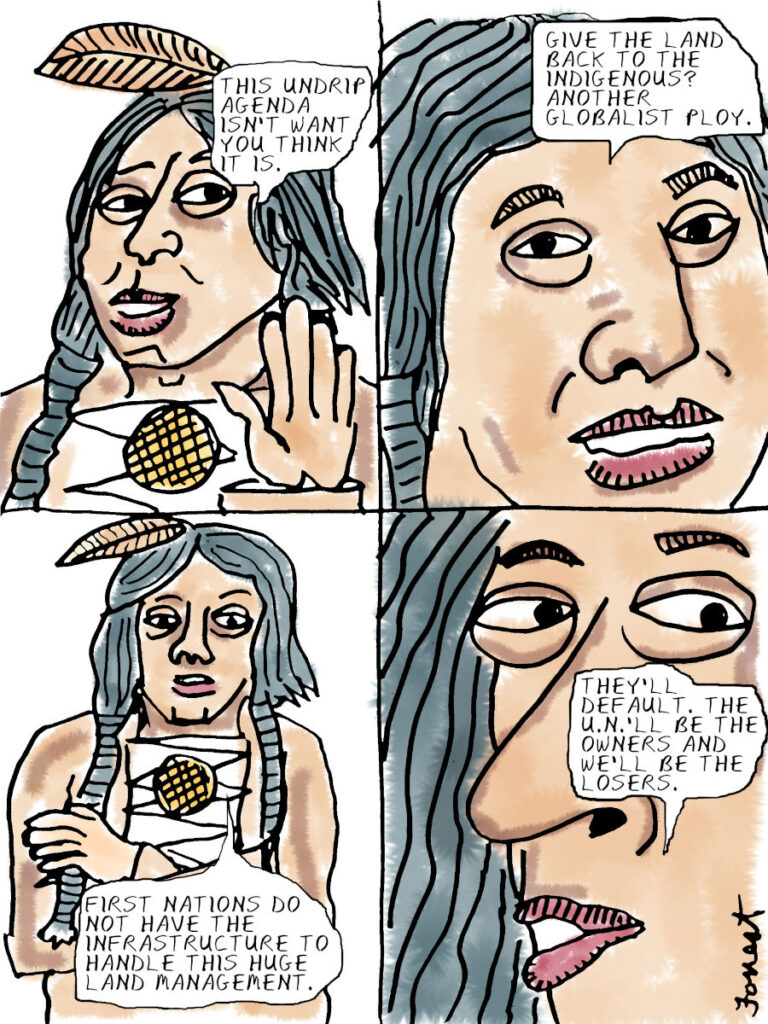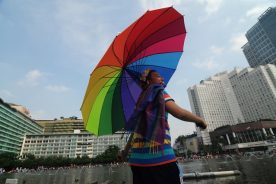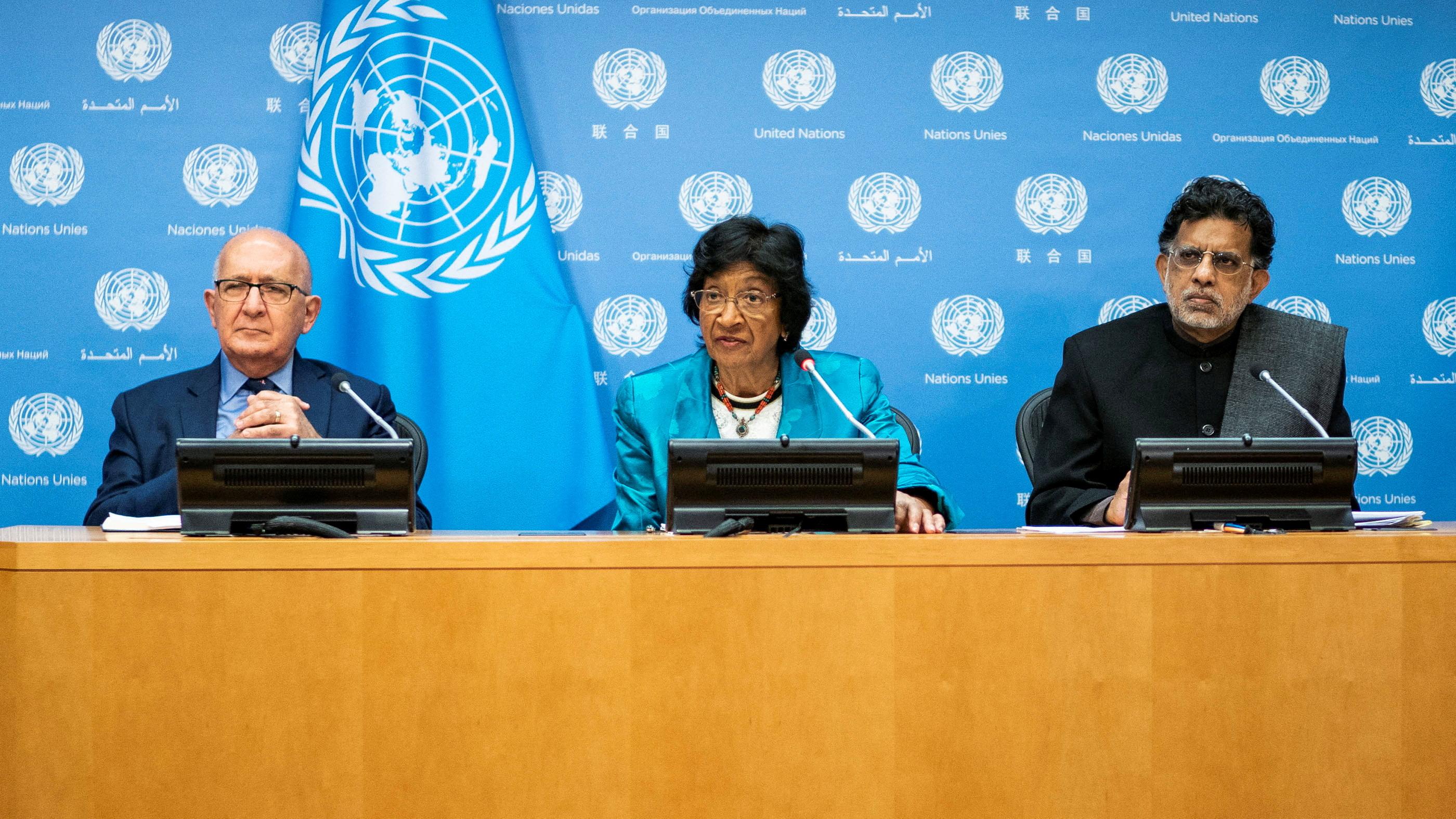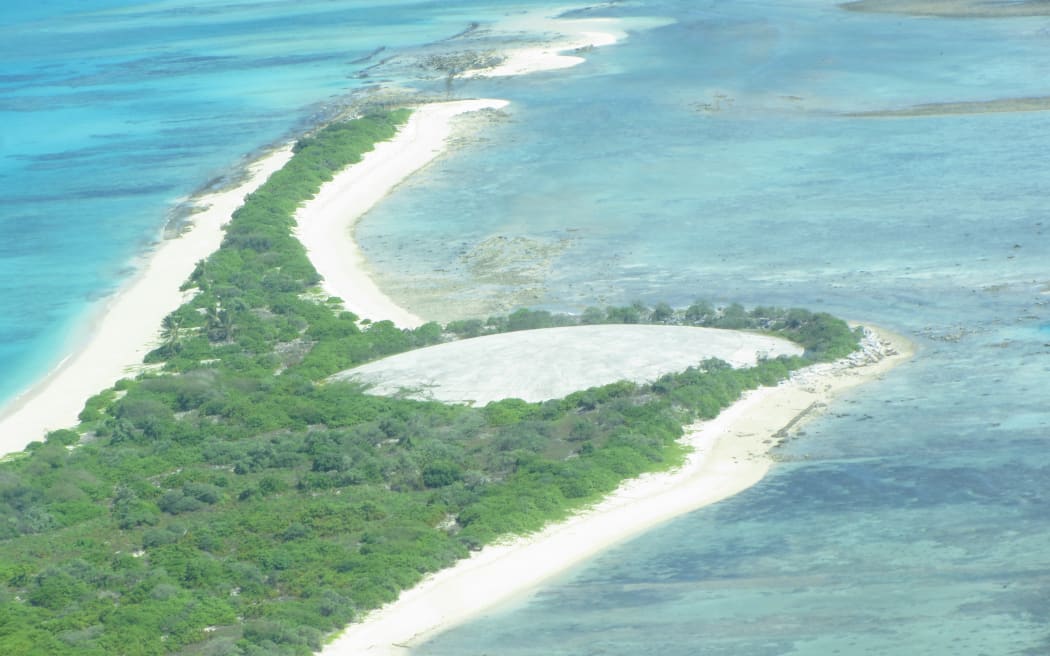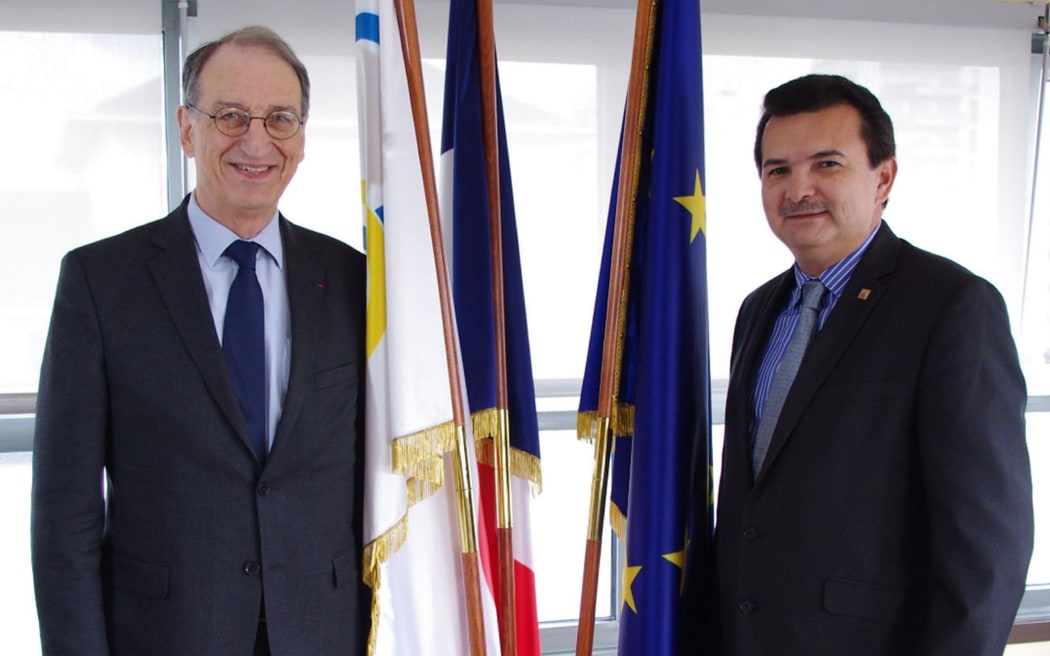At the U.N. climate conference in Sharm el-Sheikh, Egypt, we speak with prominent Ugandan climate activist Vanessa Nakate about the impact of the climate crisis on the continent of Africa. Earlier today she spoke at a COP27 event and blasted world leaders for not doing more. She describes the need for wealthy nations gathered at the U.N. climate conference, particularly the U.S., to finance loss and damage for poorer nations in the Global South. “For the current and historic emitters, they need to take responsibility for the climate crisis, and they need to pay for this crisis,” says Nakate.
TRANSCRIPT
This is a rush transcript. Copy may not be in its final form.
AMY GOODMAN: This is Democracy Now!, democracynow.org, The War and Peace Report. I’m Amy Goodman, as we broadcast live from the U.N. climate summit in Sharm el-Sheikh, Egypt.
We look now at how the crisis is impacting Africa. We’re joined by one of the continent’s, one of the world’s most prominent climate activists, Vanessa Nakate from Kampala, Uganda. She’s the author of A Bigger Picture: My Fight to Bring a New African Voice to the Climate Crisis.
Earlier today, at an event here at the U.N. climate talks, Vanessa Nakate condemned world leaders for investing in new fossil fuel projects. She also warned the summit is being turned into a, quote, “sales and marketing conference for more pollution and more destruction and more devastation.” Vanessa Nakate joins us now.
Welcome back to Democracy Now! It’s an honor to have you with us, Vanessa.
VANESSA NAKATE: Thank you so much.
AMY GOODMAN: Why don’t you continue on that theme? Now, you were at a side conference. Have you ever addressed the plenary?
VANESSA NAKATE: No, I haven’t.
AMY GOODMAN: Do you want to?
VANESSA NAKATE: I would love to.
AMY GOODMAN: Tell us what would you tell world leaders.
VANESSA NAKATE: Well, I would tell world leaders that we really need to keep 1.5 degrees Celsius alive. At just 1.2 degrees Celsius, so many communities are suffering some of the worst impacts of the climate crisis. I recently made a visit to Turkana, a region in the Horn of Africa, and we are seeing the worst drought in the Horn of Africa.
AMY GOODMAN: This is in Kenya?
VANESSA NAKATE: Yes, in Kenya. And so many children are suffering from severe acute malnutrition. So it’s really important that our leaders keep 1.5 degrees Celsius alive.
AMY GOODMAN: Talk about what you mean by this has become a kind of marketing extravaganza.
VANESSA NAKATE: Well, apparently, we have more than 600 fossil fuel lobbyists at this COP, and yet so many communities and activists from the frontlines of the climate crisis weren’t able to make it here. There is a quote that I read recently that said, “If you’re going to discuss about malaria, do not invite the mosquitoes.” So, for me, it’s a worry that we have over 600 fossil fuel lobbyists in this place. It’s a worry for our future. It’s a worry for our planet. It’s a worry for the people.
AMY GOODMAN: This has been described as Africa’s COP, here in northern Africa. Do you see this as Africa’s COP?
VANESSA NAKATE: Well, many people, of course, are calling it an African COP. And it can only live up to that name if the climate crisis is addressed and if what is needed, what the communities from the African continent are demanding for are fulfilled. And one of those things is the Loss and Damage Finance Facility. The climate crisis is pushing so many communities beyond adaptation. You cannot adapt to starvation. You can’t adapt to extinction. And that is what is happening right now. Loss and damage is affecting so many communities. So, for me, what will make it an African COP is ensuring that there is an establishment of a Loss and Damage Finance Facility, and also supporting a just transition to renewable energy while addressing the energy poverty on the African continent.
AMY GOODMAN: We were talking to Nnimmo Bassey, your colleague in Nigeria, who has probably gone to more COPs than you’ve lived years. But he talked about this being the lost and damaged COP. When you say “loss and damage,” it just rolls off your tongue. You have been at several of these COPs. But the rest of the world, that’s U.N. lingo. Explain exactly what you mean, the gritty facts on the ground, what loss and damage means, and who needs to pay for reparations.
VANESSA NAKATE: Well, loss and damage looks like what I’ve just explained, you know, what I saw in Turkana — children, women and people suffering, having no access to water, having no access to food, and doctors referring to, you know, the cases of so many children in hospitals as “wasted” cases because of the severe acute malnutrition. Loss and damage is what we see happening in Pakistan, the flooding that left over 1,500 people dead and over 33 million people displaced. It is what is happening in Nigeria as a result of the floods. It is what has happened on the African continent, you know, with the cyclones. So, it’s really understanding the impacts of the climate crisis that are pushing communities beyond adaptation.
AMY GOODMAN: Can you talk about EACOP? You’re from Uganda. You’ve spoken out against the East African Crude Oil Pipeline, EACOP, which will run through Uganda and Tanzania. What are your concerns?
VANESSA NAKATE: Well, my concerns are that, you know, fossil fuel companies, like Total, are promising —
AMY GOODMAN: Total is the French oil company.
VANESSA NAKATE: Yes. They are promising, you know, the people in my country, and all other investments in Africa, that they’re bringing economic progress. But we’ve seen decades of fossil fuel investments on the African continent. They haven’t brought economic progress. So my worry is that, you know, the environment and biodiversity is going to be destroyed. We are going to find ourselves in an accelerated climate crisis, and profits are going to end up in pockets of already rich people. The energy is going to be loaded onto ships, you know, and taken to Europe, and the people in Africa will still not have access to the electricity that has been promised. If the fossil fuel industry really meant that they were bringing energy on the African continent, then we wouldn’t have over 600 million people on the African continent still struggling to find access to electricity.
AMY GOODMAN: So, you’re talking about the massive problems that Africa and other parts of the world face. But you’re also engaged in solutions at the local level. Talk about what you’re doing in Uganda?
VANESSA NAKATE: So, in Uganda, I work with the Rise Up Movement. And what we do, we — one of the things that we do is to carry out climate education in schools and also reach out to communities to tell them about what is happening and about their role in addressing the climate crisis. But I also run a project which involves the installation of solar panels and eco-friendly cook stoves in schools in Uganda. And so far we’ve done installations in 31 schools. I started this project to help drive a transition to renewable energy in the schools in Uganda and also to carry out climate education in schools and ensure that schools have alternatives, you know, to cleaner cooking stoves and also alternatives to the energy that they can use.
AMY GOODMAN: Wait a second. Today is November 15?
VANESSA NAKATE: Yes.
AMY GOODMAN: Is it true that it’s your birthday?
VANESSA NAKATE: Yes.
AMY GOODMAN: That it is your B-Earth day. Do you spell it B-E-A-R-T-H-D-A-Y? And you’re 26 years old?
VANESSA NAKATE: Yes.
AMY GOODMAN: What would you consider the greatest birthday present coming out of this COP?
VANESSA NAKATE: Well, I mean —
AMY GOODMAN: Happy birthday!
VANESSA NAKATE: Thank you so much. Well, I mean, it would be having people and justice at the center of the negotiations. And that will look like a Loss and Damage Finance Facility. That will look like a just transition to renewable energy. You know, that will look like no new fossil fuel investments, and that is coal, oil and gas.
AMY GOODMAN: Wait, by my calculations, let’s see, you’re 26 years old.
VANESSA NAKATE: Yeah.
AMY GOODMAN: And this is COP27. That means 27 years of the Conference of Parties, of the U.N. climate summit. The COP has been meeting all of your life.
VANESSA NAKATE: Exactly. And it’s worrying that we’ve had 27 COPs now, and global temperatures continue to rise, and the climate crisis continues to accelerate, and communities continue to suffer, and our leaders continue not to do anything about it.
AMY GOODMAN: So, let’s talk about the leaders of the countries that have historically emitted the most greenhouse gases. You have the United States, historically the largest greenhouse gas emitter in the world and, per capita, one of the largest greenhouse gas emitters today; China, the largest current greenhouse gas emitter. Xi and Biden met on Monday. What do they need to do? When people say, “Why, if we’re dealing with all these problems in the United States, should we be giving money to other countries?” talk about why, and how that money should be targeted.
VANESSA NAKATE: Well, I think that it’s a moral responsibility for historic emitters and also current emitters to address the climate crisis. I was able to, you know, listen to President Biden speak, and I think that we desperately needed greater leadership from President Biden and the United States. I think that the United States has a huge responsibility to not only address the climate crisis, to not only address loss and damage, but to put money to support communities that are suffering right now.
And when we talk about this money, we need this money to be able to go to communities that need it, and for this money to go in the form of small accessible grants, not loans to add an already existing debt. So, for me, for the current and historic emitters, they need to take responsibility for the climate crisis, and they need to pay for this crisis.
AMY GOODMAN: You know, this is an unusual COP because of the emphasis on human rights. I mean, you have Alaa Abd El-Fattah in prison among tens of thousands of Egyptians. This is taking place in Egypt, this U.N. climate summit. And you have climate justice advocates from around the world. You all joined together on Saturday, saying that you can’t separate these two issues. Talk about how that is integral for you, as well.
VANESSA NAKATE: Well, I mean, our fight for climate justice is a fight for human rights. We’ve seen how the climate crisis is violating the rights of so many people across the world. And to go back to the story of Turkana, what I saw there was children struggling to find water, struggling to find food. And some of the communities that I visited, you know, beyond Uganda, that are suffering because of air pollution, these are people struggling to find access or to even breathe clean air. So, a fight for climate justice is indeed a fight for human rights. And we cannot have climate justice without ensuring that the rights of the people are protected.
AMY GOODMAN: Final words to this global audience that is listening to everything you say?
VANESSA NAKATE: Well, I mean, well, it’s very hard to find words to say when you know what is happening, especially in the negotiations and what is happening at the COP. But what I hope is that our leaders can inspire us with action. I hope that our leaders can inspire us with true climate leadership.
AMY GOODMAN: Well, Vanessa Nakate, I think you’ve shown what leadership looks like.
VANESSA NAKATE: Thank you.
AMY GOODMAN: We thank you very much for being with us. And again, happy, happy birthday!
VANESSA NAKATE: Thank you.
AMY GOODMAN: Vanessa Nakate, climate justice activist, speaking to us. She usually is in Uganda. She’s the author of her memoir, A Bigger Picture: My Fight to Bring a New African Voice to the Climate Crisis.
And that does it for our show. By the way, Juan González will be giving a speech Friday at the Columbia School of Journalism, reflecting on his 40 years of fighting for racial and social justice in journalism. It begins at 4:10 p.m. on Friday. See democracynow.org for more information.
A very special thanks to our colleagues here in Sharm el-Sheikh, to Hany Massoud, to Sharif Abdel Kouddous, Denis Moynihan, Nermeen Shaikh. I’m Amy Goodman. Thanks so much for joining us.
This post was originally published on Latest – Truthout.


